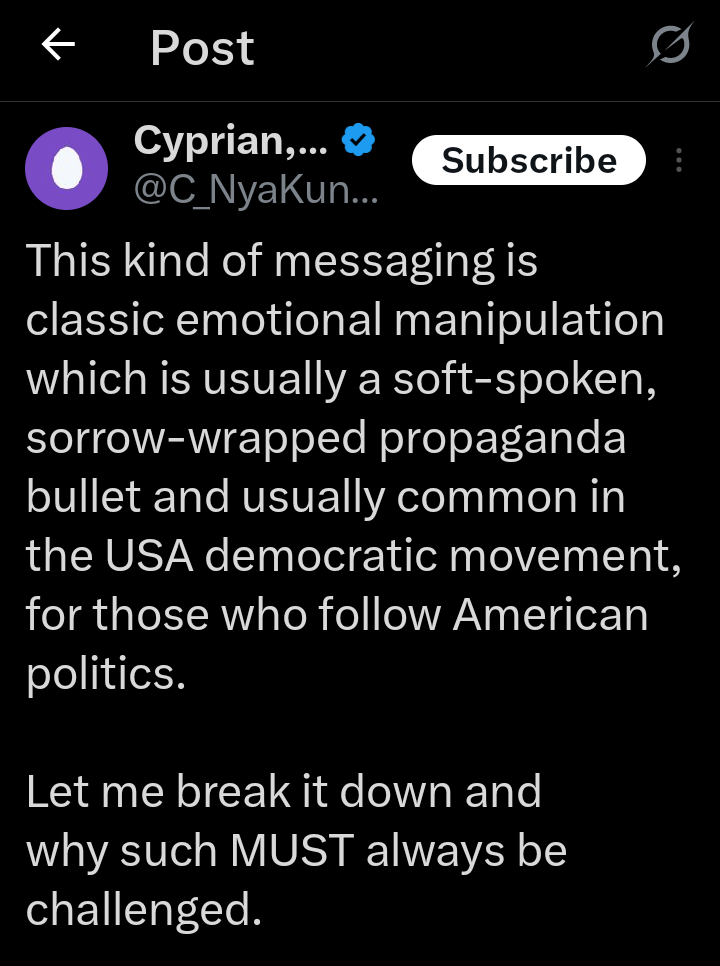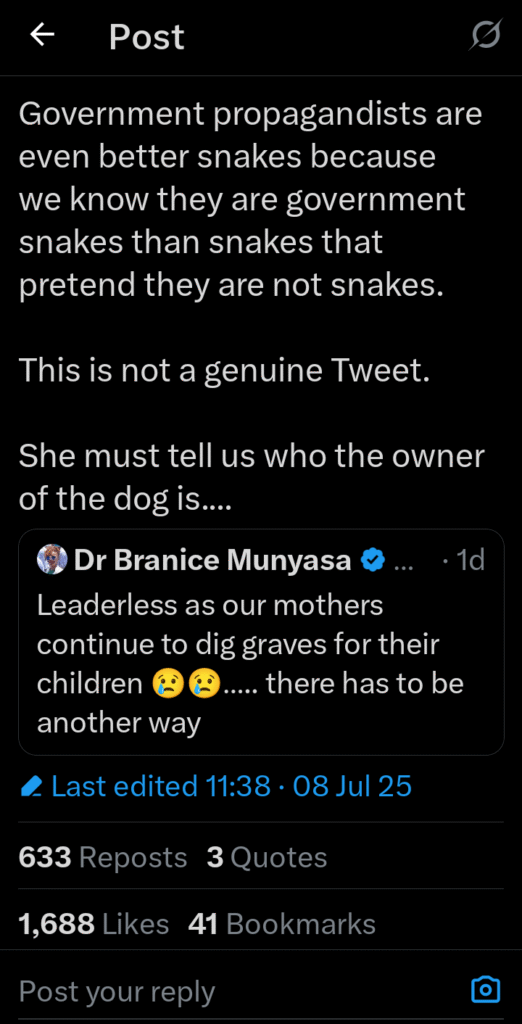Dr. Branice Munyasa recently made a statement online that many Kenyans felt was deeply inappropriate, especially considering the ongoing unrest and rising number of deaths during the protests.
Her comment, which touched on the grief of mothers burying their children, appeared to some as a reflective thought. But for many, it came off as an insult to those risking everything to stand against police violence.
Instead of supporting the cry for justice, her words were seen as casting doubt on the legitimacy of the protests, shifting attention away from the actions of those in power.

Cyprian Is Nyakundi, a well-known online commentator, responded firmly, accusing Dr. Munyasa of spreading subtle propaganda. He criticized the tone and timing of her tweet, saying it helped the state avoid accountability by painting demonstrators as the source of chaos.
He warned that such language is not harmless it can be used to twist the story, placing blame on victims rather than addressing the real issue: state-sponsored violence.
According to Nyakundi, this kind of narrative offers cover for the authorities to continue using force while making protestors look like the problem.People are being killed not because they are lost or disorganized, but because armed officers are using live rounds against them.
Dr. Munyasa’s post, instead of questioning this brutality, seems to question the very people standing up to it. Many have questioned her motives why speak in such abstract terms about “finding another way” when people are already dying for a cause rooted in truth and justice?
This vague call for alternative solutions sounds more like a dismissal of the sacrifices being made on the streets.
Online reactions have been intense. Many users criticized her, pointing to possible personal interests she may be trying to protect. Some hinted that her position could be linked to ties with powerful individuals or businesses that stand to lose from ongoing demonstrations.

A few attempted to steer the conversation towards reconciliation, but the overwhelming response was anger, especially from those who feel abandoned by voices they once trusted.
What this situation shows is how influential figures can be used willingly or unknowingly to dilute the strength of public resistance.
Dr. Munyasa’s remarks, though framed with emotion, seem to distract from the harsh reality on the ground. Her message, rather than bringing unity, added confusion and gave room for the state to breathe while citizens suffocate under repression.
In moments like this, clarity is critical. Her message, lacking that clarity, has been viewed by many as harmful. The situation in Kenya is dire. Protesters face deadly force for speaking out.
They carry no weapons, yet they are being met with gunfire. International organizations have already called out the excessive use of power. The mothers burying their sons are not doing so because of bad leadership among protesters.
They are burying them because the state is choosing violence over conversation. These are the people who deserve support, not blame.
And when figures like Dr. Munyasa speak in ways that help blur the truth, they end up giving comfort not to the grieving, but to those responsible for the grief.





















Add Comment